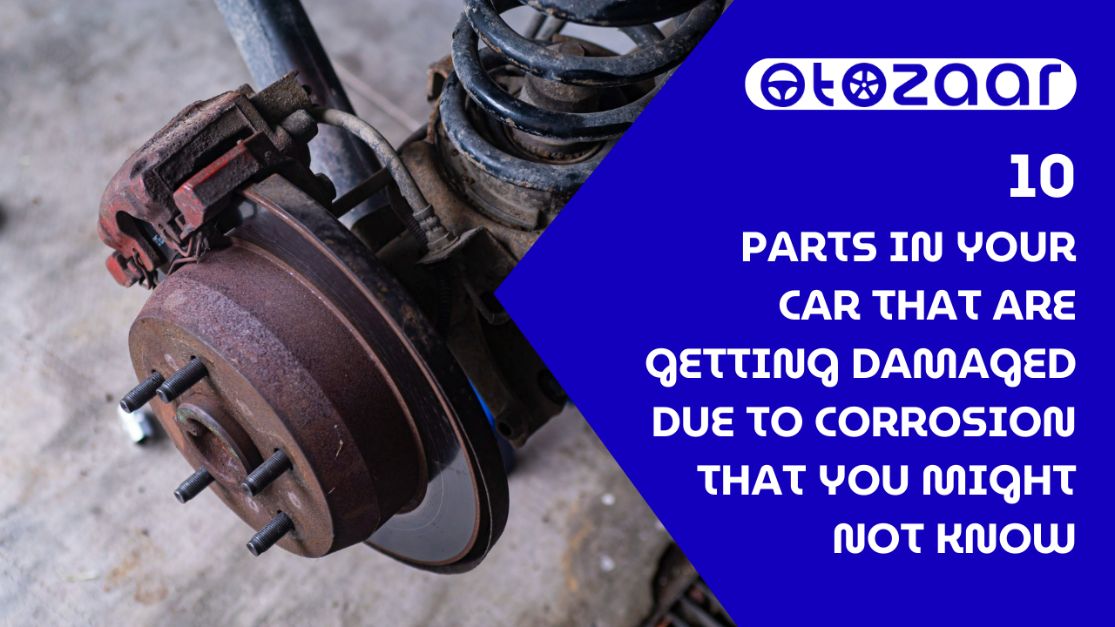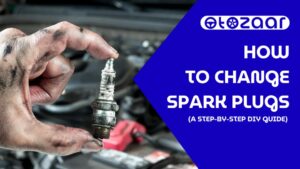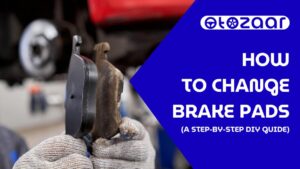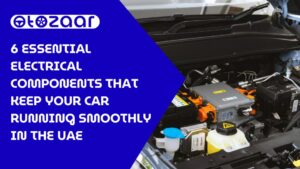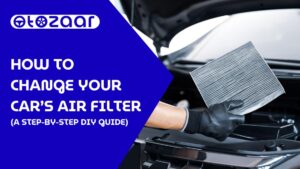Corrosion is a subtle yet significant threat to your vehicle’s longevity and performance. In the UAE, where harsh climatic conditions and environmental factors accelerate the corrosion process, it is crucial to be aware of which car components are most susceptible. This comprehensive guide explores ten critical car parts that often suffer from corrosion unnoticed, offering practical tips to protect them and extend their lifespan.
1. Brake Components
Your vehicle’s braking system is essential for safety, making it imperative to address any potential issues with corrosion. Brake components, including calipers, rotors, and lines, are particularly vulnerable due to their constant exposure to moisture and road salts. Over time, rust can compromise braking efficiency, leading to reduced stopping power, increased distances, and potentially severe brake failures.
Prevention Tips:
- Regular Inspections: Frequently check brake components for signs of rust or damage.
- High-Quality Brake Fluid: Use premium brake fluid and replace it as per the manufacturer’s recommendations.
- Anti-Corrosion Treatments: Consider applying anti-corrosion coatings to extend the life of brake parts.
2. Exhaust System
The exhaust system, encompassing the muffler and tailpipe, faces considerable exposure to moisture, road debris, and salt. These factors make it highly prone to corrosion. Rust can lead to holes and leaks, causing increased noise, reduced performance, and possible emissions failures.
Prevention Tips:
- Routine Inspections: Regularly examine the exhaust system for rust or damage.
- Rust-Resistant Coatings: Apply rust-resistant coatings to exhaust components.
- Proper Drainage: Ensure the system has adequate drainage to prevent moisture buildup.
3. Fuel Lines
Fuel lines are crucial for delivering fuel from the tank to the engine. Corrosion can result in leaks, posing a serious fire hazard and diminishing engine performance. The high temperatures and humidity in the UAE exacerbate this issue.
Prevention Tips:
- Regular Checks: Inspect fuel lines frequently for signs of wear or corrosion.
- Immediate Replacement: Replace any damaged or corroded lines promptly.
- Rust-Preventing Additives: Use fuel additives designed to prevent rust.
4. Battery Terminals
Corrosion at battery terminals can lead to poor electrical connections, resulting in starting problems and diminished battery life. The heat and humidity prevalent in the UAE can accelerate corrosion at these points.
Prevention Tips:
- Regular Cleaning: Clean battery terminals regularly with a mixture of baking soda and water.
- Protective Sealants: Apply a protective sealant or grease to the terminals.
- Secure Battery: Ensure the battery is firmly mounted to prevent movement.
5. Undercarriage
The undercarriage is constantly exposed to road debris, water, and salt, making it one of the most corrosion-prone areas of your vehicle. Rust in this area can weaken the vehicle’s structural integrity, leading to costly repairs.
Prevention Tips:
- Frequent Washing: Wash the undercarriage regularly, particularly after driving in wet conditions.
- Undercoating: Apply undercoating or rust-proofing treatments.
- Prompt Repairs: Inspect and repair any damage to protective coatings as soon as possible.
6. Wheel Wells
Wheel wells are exposed to dirt, moisture, and road salt, leading to corrosion over time. This can impact suspension components and potentially cause alignment issues.
Prevention Tips:
- Regular Cleaning: Clean wheel wells regularly to remove debris and moisture.
- Protective Coatings: Apply a protective coating to help prevent rust.
- Routine Checks: Monitor wheel wells for signs of wear or damage during regular maintenance.
7. Radiator and Cooling System
The radiator and cooling system are essential for maintaining engine temperature. Corrosion in these components can cause leaks and reduce cooling efficiency, potentially leading to overheating and engine damage.
Prevention Tips:
- Quality Coolant: Use high-quality coolant and adhere to replacement intervals.
- Inspection: Regularly check the radiator and hoses for signs of rust or leaks.
- Proper Ventilation: Ensure there is proper airflow and ventilation to the radiator.
8. Suspension Components
Suspension parts, such as springs, shock absorbers, and control arms, are exposed to environmental elements and road debris, making them susceptible to corrosion. Rust can affect their function, resulting in a rough ride and handling problems.
Prevention Tips:
- Regular Inspections: Check suspension components frequently for rust or damage.
- Rust-Resistant Coatings: Apply rust-resistant coatings to exposed parts.
- Timely Repairs: Address any suspension issues promptly to prevent further damage.
9. Body Panels
Body panels are often protected by paint, but any chips or scratches can expose the metal underneath to moisture and air, leading to corrosion. This not only affects the vehicle’s appearance but can also compromise its structural integrity.
Prevention Tips:
- Wash and Wax: Regularly wash and wax your car to maintain the paint’s protective layer.
- Prompt Repairs: Repair any chips or scratches immediately to prevent rust formation.
- Ceramic Coating: Consider applying a ceramic coating for enhanced protection.
10. Engine Components
Engine components, such as the cylinder head and block, are exposed to coolant and oil, making them vulnerable to corrosion. This can lead to leaks, decreased efficiency, and potential engine failure.
Prevention Tips:
- High-Quality Fluids: Use premium engine oil and coolant to prevent corrosion.
- Regular Inspections: Check engine components regularly for rust or leaks.
- Maintenance Schedule: Follow the manufacturer’s maintenance schedule for optimal performance.
conclusion
Corrosion is a pervasive issue that can impact various parts of your vehicle, often going unnoticed until significant damage has occurred. In the UAE, where environmental conditions can accelerate corrosion, it is essential to take a proactive approach in protecting your car. Regular inspections, timely maintenance, and the application of protective coatings can help mitigate the effects of corrosion and extend the life of your vehicle. By understanding which components are most vulnerable and taking preventive measures, you can ensure your vehicle remains in excellent condition, providing reliable and safe transportation for years to come.

